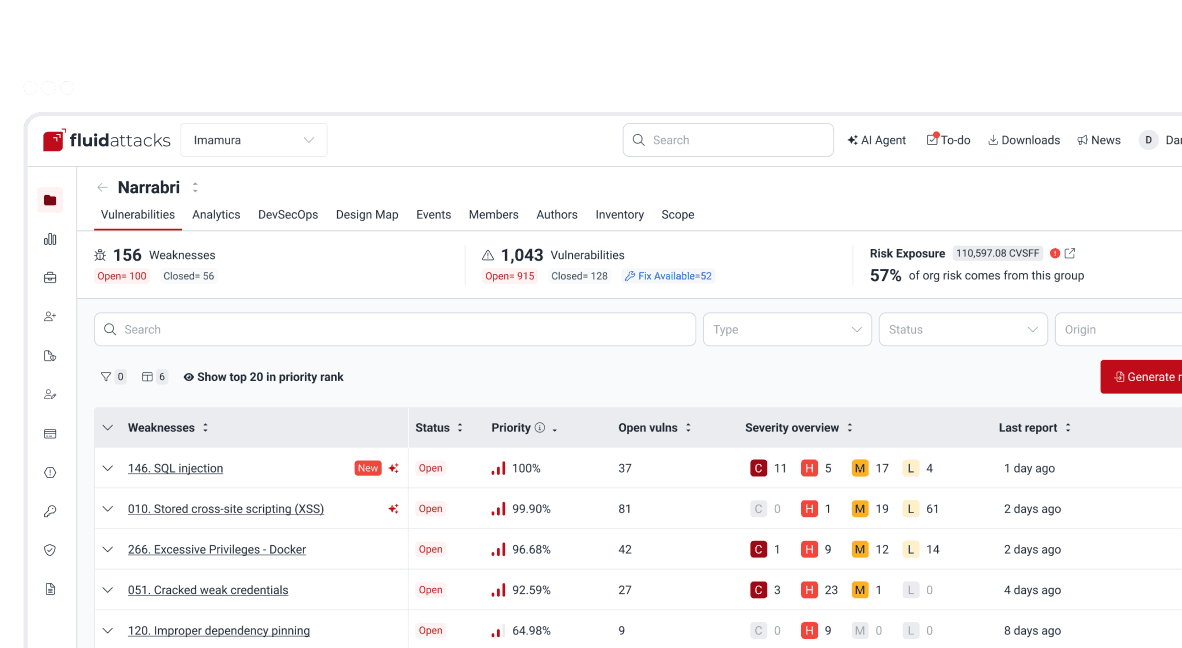Attacks
Pegasus, fraught with peril! The spyware that threatens the world

Cybersecurity editor
Updated
Jul 26, 2021
5 min
If you clicked on this post, it is because you want to understand what’s going on with Pegasus, the world’s greatest cyber-hazard. And yes, the situation is much more dangerous than you think.
Without a doubt, we are talking about something much more powerful than the winged, immortal creature born from its mother blood, Medusa, after being beheaded by Perseus. Unlike such a powerful mega-equine, the software we’re talking about works almost undetectably. It has more eyes than Gorgon’s head, more range than her son’s flight, and is more ubiquitous than the constellation into which Zeus transformed the beautiful winged horse.
With Pegasus, we have entered an era of espionage unprecedented in human history. Today, each of us carries a potential spy in our pockets. Yes, we had been warned for years about this possibility. Privacy policies have been created to prevent those small devices from becoming omniscient eyes and ears of our life. However, no program capable of using all those functions against us had ever been made public… at least not until Pegasus arrived.
In this post, we will not focus on the political-international discussion behind Pegasus. Nor will we focus on the ethical considerations behind the development and use of this type of software. There are much more prepared people doing such dissertations.

Countries were Pegasus have operated. Taken from The Guardian.
What do we know about Pegasus?
Pegasus is the main product of NSO Group, which is an Israeli surveillance company. According to Jon Gerberg, a Washington Post reporter, NSO is dedicated "to make malicious software that governments use to target your smartphone and gather data out of it, and they sell this to governments all over the world." Peter O’Brien, from France24, characterizes Pegasus as "easily installed, almost impossible to detect and even harder to get rid of." In this sense, there could be a point of comparison with Lazarus. But differently from Lazarus governmental engagement, NSO, as a private company, works for whoever they choose and who has enough money to pay them. They are not responsible for what their clients do with the program they are selling.
Pegasus can infect almost every smartphone in the world (Android and iOS) nearly without being noticed. BGR India explains that it became public in 2016 after the UAE human rights activist Ahmad Mansoor sent a mysterious text message he got with a link to researchers. The message alerted him about tortured prisoners in the country. He was trying to verify the integrity of that information when the researchers that examined that text told him it was a smishing attack leading to malware. In fact, "after the investigation, it was found out that the links were linked back to the infrastructure belonging to the NSO group."
What is new with Pegasus?
Every spyware that allows remotely controlling a device must "enter" the mobile phone somehow. From the time Pegasus was discovered in 2016 to the present, the entry system into victims' phones has varied, but their functions are practically identical. At first, Pegasus was known as Q Suite and Trident, and its entry mode to the system was through classic phishing, smishing or spoofing methods. However, they have perfectionated their entry techniques and now it is almost perfect (better than Specter’s nearly unmatched modus operandi, another cyber threat we already talked about).
Pegasus’s entry mode is known as zero-click attack. It allows the attacker to access the device using a technique that "relies on exploiting software which receives data before the device can determine if the data is coming from a trustworthy source or not." According to ZecOps, several Apple devices had a vulnerability in the Mail app that had not been patched. Through it, attackers could remotely access to infect a machine. The vulnerability was fixed, but that hasn’t stopped attackers from figuring out ways to remotely access devices. In Android, the attackers were targeting "a vulnerability in the graphics library of the phone, running version android 4.4.4 and above."
Other ways in which the zero-click attack can be performed are through "security bug in voice calls made through apps like WhatsApp." If this weren’t enough, the most sinister version of zero-click attacks removes all traces of the entry attempt. Attackers can perform a miss call on the victim, "once the software is installed, it would delete the call log entry so that the user wouldn’t even know about them as called." This makes it a perilous threat because it is not based on social engineering. Attackers don’t have to wait for the victim to make a mistake. People can handle their devices with the utmost care, and still, Pegasus can get access to them.

NSO Group clients and Pegasus tracked people. Taken from The Guardian.
What can Pegasus do?
When installed on a device, "the attacker can virtually control any path of the phone." Controllers can check all the media stored on the device: photos, videos, messages, emails, credentials, passwords, etc. They can track the GPS to have a detailed minute-by-minute map about the user’s location. They can access the calendar to see what plans have been scheduled. And the most spine-chilling thing of all is that at any time, they can turn on the microphone or camera to record. As long as a device is susceptible to being attacked by Pegasus, there is no safe place.
All this occurs in such discreet, disguised and seemingly normal circumstances that it is almost impossible to determine whether a device has been infected with Pegasus. According to Peter O’Brien: "The phone wouldn’t show any sign of being infected besides the finest traces of abnormal software processes." As if all this were not enough, even if a victim overcomes every obstacle to discover that she has been affected by Pegasus, she cannot remove it from her system. It is not an application. There is no software to restore the system to a pre-Pegasus version. To top it off, " the malware can stay even after a factory reset."
Now what?
So, what can we do to protect ourselves from such a threat?
Usually, I would give you advice such as "be careful not to open suspicious links," "if you see that there is something that should not be on your cell phone, report it to the authorities immediately." However, none of these interim measures work with the all-mighty Pegasus. It’s too powerful to be stopped by tricks of that nature. Perhaps the only thing that could mitigate the opportunity for them to enter your device is to have no device at all.
Don’t you think that’s good advice? Okay then… Here’s a genuine recommendation: always keep your system up to date. Just like what happened with the Mail vulnerability in iOS or with that of the graphics card of Android systems, the related companies were given the task of patch vulnerabilities spotted. That doesn’t guarantee they won’t attack you, but it could minimize the risks.
We hope you have enjoyed this post! At Fluid Attacks, we boost your vulnerability management we look forward to hearing from you. We specialize in Continuous Hacking. To learn more about it, contact us!
Get started with Fluid Attacks' RBVM solution right now
Other posts




















